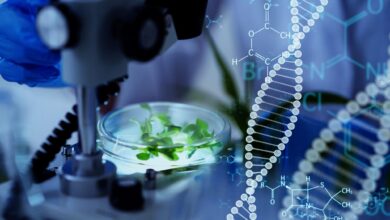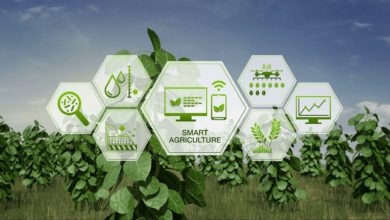Introduction to Agricultural Biotechnology(AgriTech)
The agricultural biotechnology field, also called “AgriTech,” is rapidly expanding. It combines biological studies and technology to improve the efficiency of agriculture. It’s a mix of nature and science to ensure enough food.
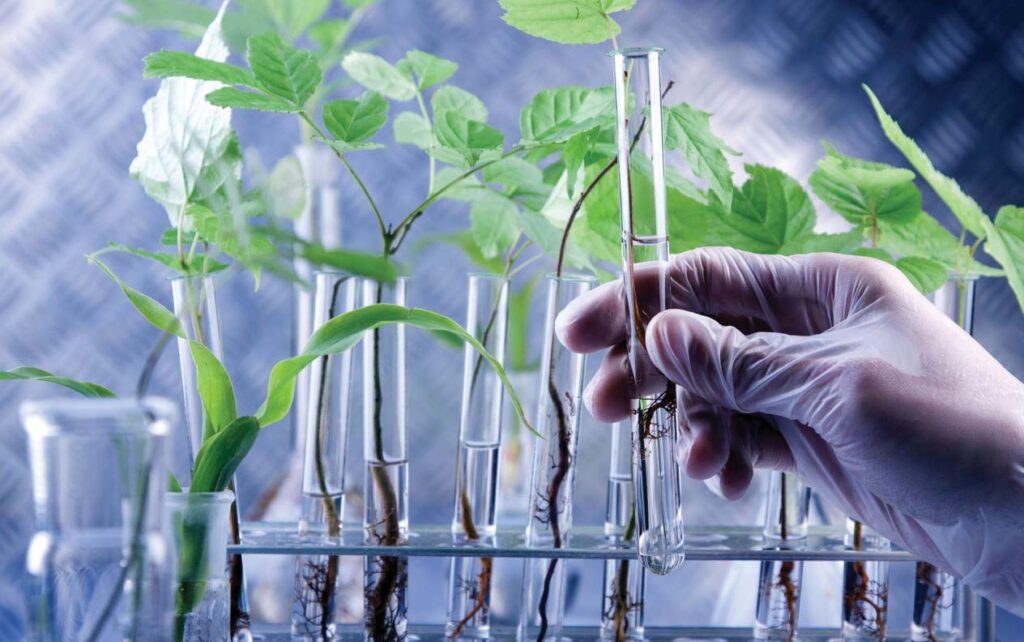
The Evolution of Agricultural Biotechnology
Humans have been manipulating the genetic makeup of crops for thousands of years. However, the last few decades have accelerated AgriTech advancement.
Pioneers in the Field
From George Washington Carver’s work with peanuts to Gregor Mendel’s pea plant experiments, the field has long been blessed with brilliant minds.
The Science Behind AgriTech
AgriTech primarily involves two areas: genetic engineering and tissue culture.
Genetic Engineering
Genetic engineering enables scientists to modify an organism’s DNA to express desired traits.
-
Techniques in Genetic Engineering
Methods like CRISPR-Cas9 and gene silencing have revolutionized the field, allowing for precise genetic modifications.
Tissue Culture and Micropropagation
This technique involves growing new plants from tissues in a lab environment, often used to replicate disease-free plants.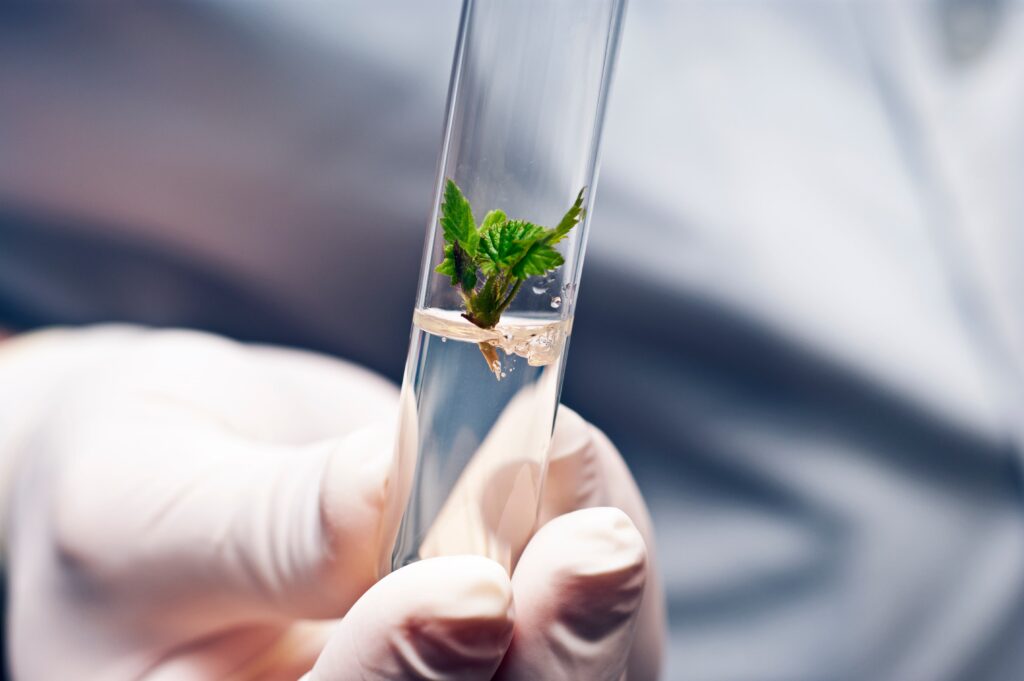
-
Applications in Crop Improvement
Tissue culture is fundamental to creating more robust, disease-resistant, and productive crops.
Benefits of AgriTech
From enhanced crop production to disease resistance, the benefits are manifold.
-
Enhanced Crop Production
By modifying the genetic code of crops, scientists can increase their yield, nutrition, and longevity.
-
Specific Examples of Enhanced Crops
Crops like Golden Rice, engineered to combat vitamin A deficiency, and drought-resistant corn varieties are notable examples.
-
Disease and Pest Resistance
Genetic modifications can make crops resistant to diseases and pests, reducing dependency on harmful pesticides.
-
Real-world Cases of Resistance
The case of Bt cotton, engineered to resist the devastating bollworm pest, provides a compelling example of this benefit.
The Future of AgriTech
The future of this field is bright, with continued advancements expected.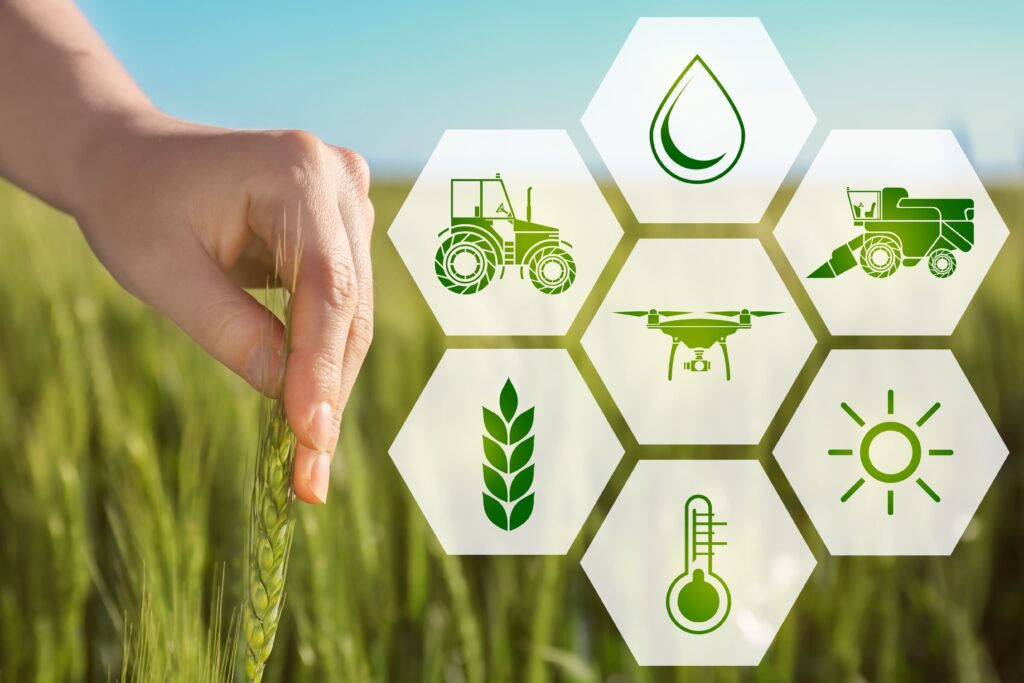
-
Technological Advancements
From gene-editing tools to AI, technology will continue to drive agricultural biotechnology forward.
-
Role of AI and Machine Learning
AI and machine learning can help predict crop diseases, automate farm operations, and accelerate genetic research.
Conclusion
Agricultural biotechnology represents nothing short of an agricultural revolution. It has the potential to address food security and environmental sustainability concerns. Nonetheless, we must proceed cautiously, harmonizing technological development with ethical and ecological problems.
FAQs for AgriTech
How does genetic engineering work in agriculture?
Genetic engineering in agriculture involves the modification of an organism's DNA to express desired traits like higher yield, disease resistance, or improved nutrition.
What are the benefits of agricultural biotechnology?
Benefits include enhanced crop production, disease and pest resistance, and the potential for more sustainable farming practices.
What role will AI and machine learning play in agricultural biotechnology?
AI and machine learning can help in predicting crop diseases, automating farm operations, and accelerating genetic research.
What are the ethical considerations in agricultural biotechnology?
Ethical considerations include potential impacts on biodiversity, unforeseen consequences of genetic modifications, and the equitable distribution of biotechnology's benefits.


